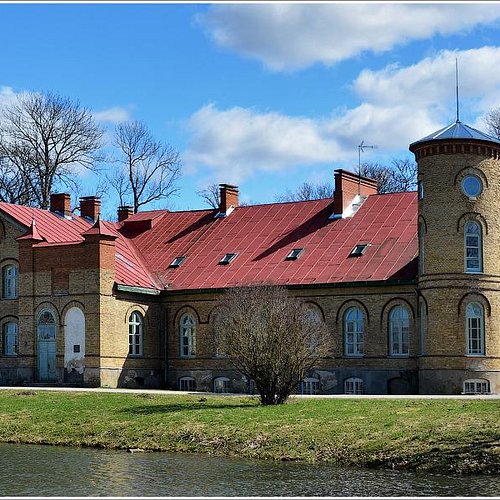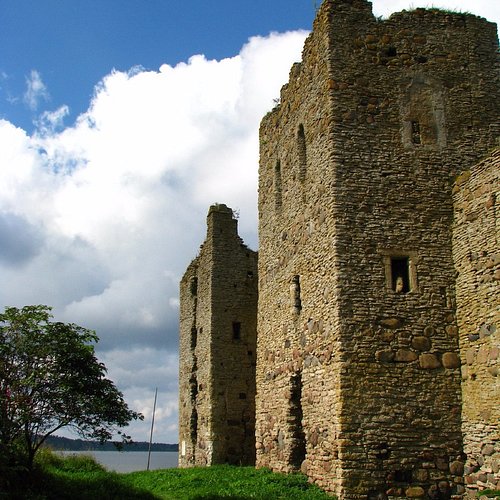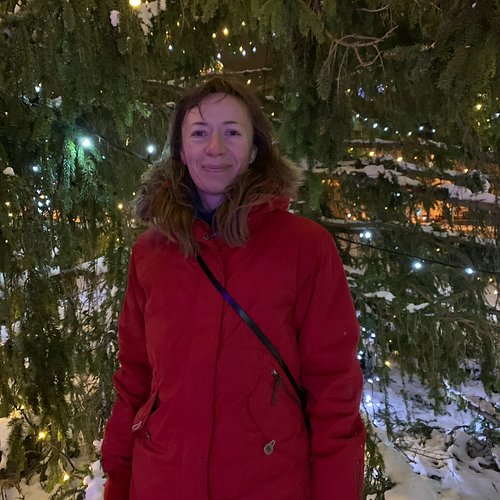Things to do in Laane-Viru County, Laane-Viru County: The Best Historic Sites
Discover the best top things to do in Laane-Viru County, Estonia including Janeda Manor, Lasila Manor, Toolse Order Castle, Porkuni Manor, Avanduse Manor, Lammasmagi Hill, Rohu Rocket Base.
Restaurants in Laane-Viru County
1. Janeda Manor
Overall Ratings
5.0 based on 3 reviews
For years, the heart of the village of Janeda has been the manor. The current manor building was built by Johan von Benckendorf in 1913-1915. The history books remember this manor as being connected with Maria Zakrevskaya Benckendorf thanks to her life full of adventure: her ties to the attempted assassination of Lenin, her life with world-renowned writers Maxim Gorky and H. G. Wells. Good to know: - the manor can be viewed from the outside every day, - groups can book ahead to visit the interior and museum, with tours available in Estonian, Russian, Finnish, German and English.
2. Lasila Manor
Overall Ratings
4.5 based on 2 reviews
Lasila Manor is best known for the von Baers, who were the lords of the manor in the early 19th century. World-famous biologist Karl Ernst von Baer spent his childhood here. The manor later belonged to the von Ungern-Sternbergs and the von Rentelns. Today it is home to Lasila School. The building can be viewed from the outside at any time, while the interior can be explored as part of the Forgotten Manors game in summer. Did you know...?*In the manor park you will find the memorial stone to Karl Ernst von Baer, and in Baer Tower in the manor house itself you can find out all about von Baer's life.
3. Toolse Order Castle
Overall Ratings
4.5 based on 19 reviews
The Order castle of Toolse is one of the more recent medieval castles on the northern coast of Estonia, it is also the castle located closest to the sea. The initial fortified manor house was probably erected by the order in the 14th century with the purpose of protecting the port, trade location and routes. During the Livonian war the castle passed on through many hands and finally ended up in the possession of Swedish troops. It was entirely destroyed in the Northern war in the beginning of the 18th century.Today inside the ruins:· Excursions are offered providing insight into history· An exciting adventure path was created· A pirate ship· Treasure quests and games of skill are organised on advance notice
4. Porkuni Manor
The current buildings of Porkuni manor, which was originally constructed on the site of a fortress, date from the 19th century. The last lord of the manor, Rennenkampff, had a much grander building constructed on the estate between 1870 and 1874, which the locals came to call ‘Porkuni castle’. One corner of the building retains the helmeted hexagonal gate tower of the former fortress, which today houses the Porkuni slate museum. Structures made of slate in the manor complex include the main building, the carriage house, the stables, the granary, the vodka factory and a significant part of the garden wall. The manor today operates as a school and can only be viewed from the outside.
5. Avanduse Manor
This estate, which belonged to the Taube family at the end of the 15th century, is in the village of Simuna, 500 metres to the west of the local church. Worth visiting and admiring in the manor house are its vestibule, its wood-panelled dining room, its hall, its unique door and window adornments and its glazed tile fireplace, dating back to 1785.The manor is currently home to the Simuna local government offices of Vaike-Maarja municipality and can be visited upon prior arrangement with the Vaike-Maarja information point.Did you know…?*The estate was purchased in 1849 as a summer residence for renowned Russian round-the-world sailor and Arctic researcher and geographer Friedrich Benjamin Lutke
6. Lammasmagi Hill
Lammasmagi hill, not far from Kunda manor, is one of the oldest sites of human settlement in Estonia. Its archaeological value was first discovered in 1872, and since then more than 25,000 tools made from bone have been found on digs in the area. These finds lead archaeologists to believe that people have lived in the area since the Stone Age. Since similar tools were later uncovered elsewhere, this Mesolithic culture was named after the original and most abundant site – the Kunda culture.
7. Rohu Rocket Base
Rohu rocket base formed part of the nuclear rocket base established in Rakvere during the Soviet era. It operated between 1960 and 1970 and was eventually closed in 1978.What remains of the base today is largely in ruins. However, you can still see rocket, service and storage hangars and launch pads. The rocket hangar features a display of the four types of rockets used in the Soviet Union, including the famous R-12.




